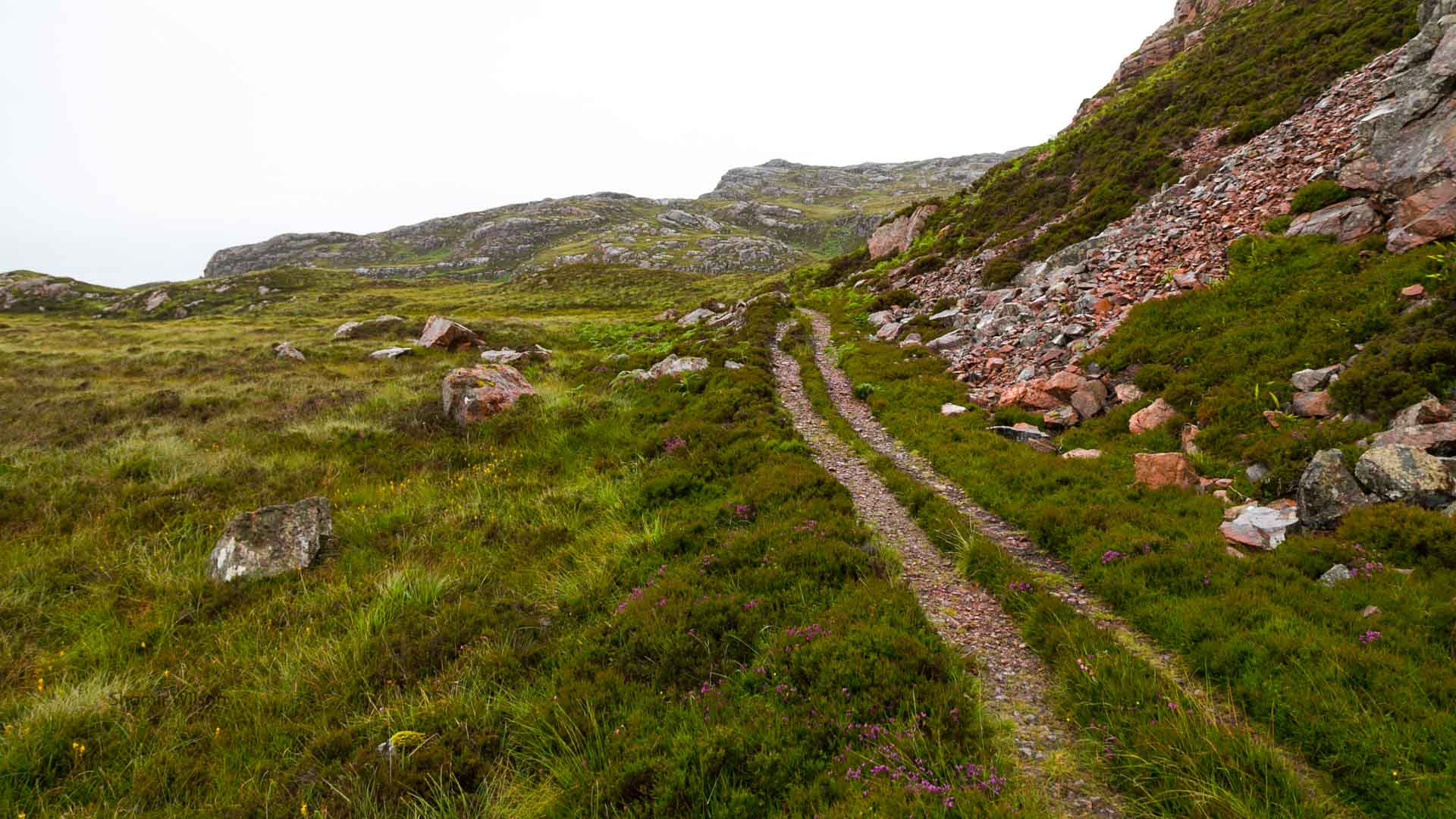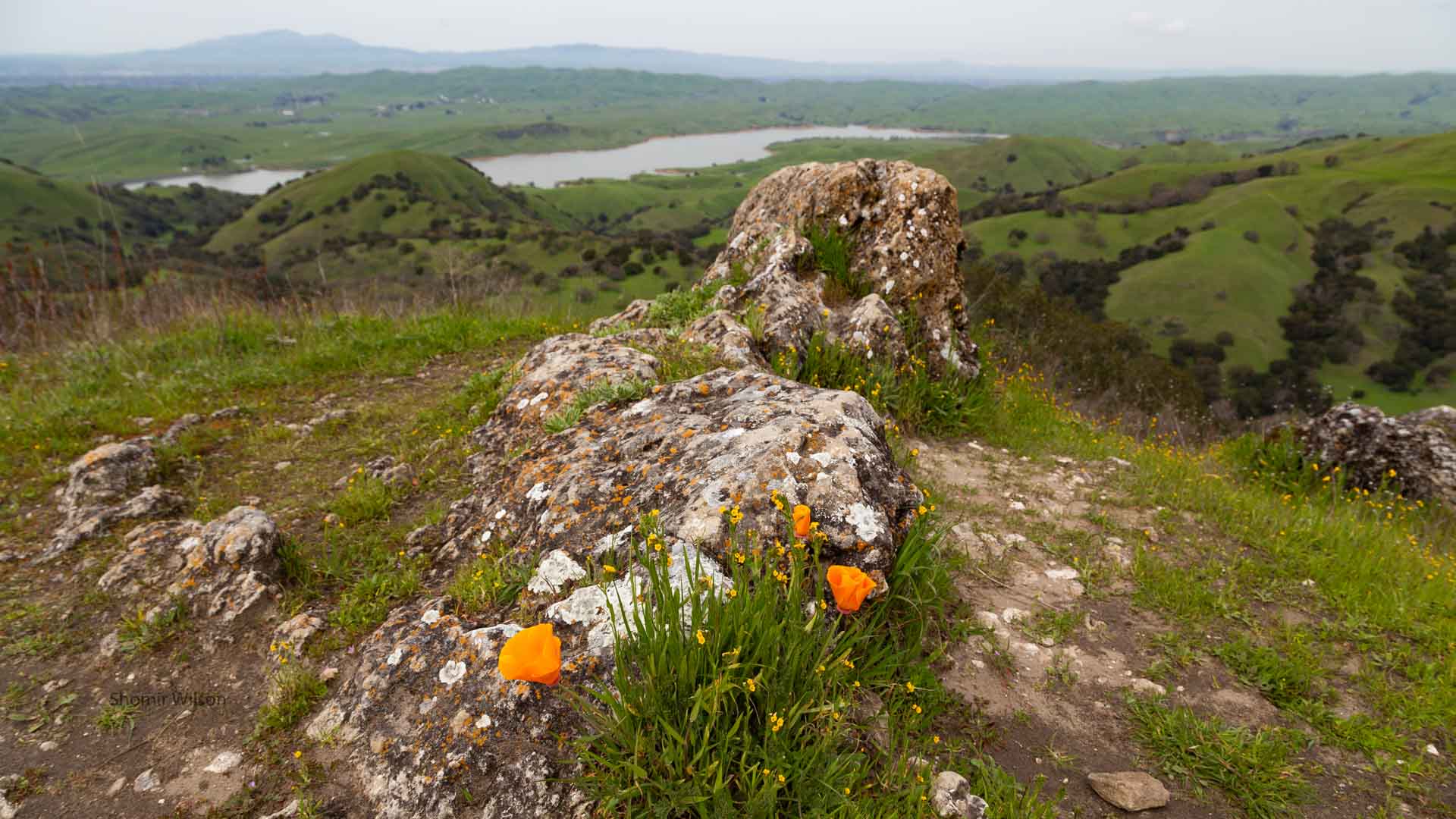Guide for Student Research
This guide is part of my advice pages.
Read This First
I wrote this guide for undergraduate and graduate students getting started in research, especially those who are uncertain what they will be asked to do or anxious about the expectations. I wrote it in general terms so that it covers many different kinds of research projects in computer science and information science ("CS/IS"), and I focus on what it's like to do research in an experiential, personal sense rather than methods or technical skills. Some parts might be specific to my lab and my style of advising.
This guide's applicability beyond its intended context may vary. For example, research outside of CS/IS may involve a different distribution of activities, like (for example) greater emphases on fieldwork, ideation, or lab equipment. Also note that the term research sometimes has a different meaning: to gather information from written archives. Students learn that sense of research in high school when they write papers for language arts classes. This guide is about a different kind of research, one that focuses on creating new knowledge.
If you're not yet part of my lab but want to join, instead start with Guide for Joining My Lab. If you're new to my lab, also read the Guide for Working in HLT Hab, which describes specific procedures and resources.
The Guide
- Getting Started
- What's it Like to Work on Research?
- Things That Often Surprise Students About Research
- Why People Enjoy Research
- Strategies
- Maintain a Steady Pace
- Determine Feasibility Early
- Have Multiple Things to Work On
- Find or Create Routines That Help You
- Remember the Difference Between Data, Information, and Knowledge
- When Communicating Your Work, Imagine Knowing Less About It
- Use Meetings Wisely
- Common Obstacles
- Preface
- Getting Started Feels Slow
- It's Difficult to Mind the Details
- It's Challenging to Learn New Skills
- Uncertainty About What to Do Next
- It Seems Like Someone Already Did the Same Research
- Feeling Discouraged by Paper Rejections
- Undergraduate Research
- Guidance for Graduate Students Mentoring Undergraduates
- Guidance for Undergraduate Researchers
- Professionalism
- Interpersonal Skills
- Conflicting Instructions
- Miscellany
- How is Research Different for Faculty?
- Do I Have to go to Graduate School? Do I Have to Become a Professor?
- What's the Purpose of the Pictures in This Guide?

Getting Started
What's it Like to Work on Research?
The goal of research is to create knowledge, but lots of different activities are necessary to reach that goal. Some of them are:
- Collecting, preparing, and exploring data: Raw data can be messy, unstructured, or unhelpful in other ways. You may need to prepare or transform data from other projects before it can be used. Some data tasks can be automated, and others require case-by-case human attention.
- Programming and debugging: You may write and maintain source code for running computational experiments, preparing data, understanding results, and many other tasks.
- Running computational experiments and analyzing results: For example, you might compare the performances of machine learning models, or you might perform statistical tests to determine whether results are significant.
- Running human subject studies: You might enlist human participants to produce data about how humans think or behave. This activity requires special approval from the university (i.e., from our IRB) that we should discuss first.
- Preparing to share findings: Sharing ideas with members of a research team requires preparation time to do well.
- Meeting with collaborators: Meetings are valuable time for gathering feedback, synthesizing new ideas, and planning next steps.
- Finding related work: You will find papers written by other research to help you with our own or to compare with your results.
- Writing up findings: You will prepare manuscripts for submission to conferences, journals, and other venues. Sometimes it takes several tries to get a paper accepted.
- Thinking about research: Occasionally you might spend time away from the other tasks to consider difficult problems or to plan your work strategically.
You may perform several of these activities in a day, or you might focus on one for a week or more, depending on what's necessary for a project. You'll probably spend some time working alone and some time working with other people.
Students perform most of these activities either in our lab space (a room with desks and chairs) or in locations of their choosing. Meetings tend to happen in faculty offices, in conference rooms, or online.
Things That Often Surprise Students About Research
Several things:
- The responsibility: You will lead a project or a significant part of a project, and there will be times when you alone must make decisions on what to do next. Advisors and collaborators can provide input, but it's often up to one or two students to sustain a project.
- The centrality of good verbal skills: Collaborators must understand your work to help you. During meetings, easy-to-follow presentations are important. When preparing a manuscript, research gets its value from a wider audience (i.e., people who haven't seen your work before) being able to understand what you did.
- The nonlinearity: There's an idealized view of research as a linear sequence of steps: have an idea, gather information, make a plan, try it out, examine the results, and report findings. However, sometimes it's appropriate to return to previous steps or to run two steps in parallel.
- The pervasive need for attention to detail: A poor explanation of results or errors in analysis can lead to lost time and retracted results.
- The need to dedicate effort to explaining research results: Numbers never explain themselves. Tables and figures don't explain themselves either, although they're helpful. Context—within a project, an area of research, or broader human knowledge—gives research results meaning, and it takes work to properly formulate context for other people.
- The uncertainty: Research projects rarely happen as planned, and flexibility is important.
- The length of projects: It may take several months from the beginning of a project to submit the first manuscript about it. After that, it may take several months or more than a year to get it accepted for publication.
Why People Enjoy Research
The personal significance of each of these rewards may vary:
- The product is knowledge: By the end of a successful project, you'll create and share new knowledge about a topic. No one else will have known it before. Even when your contributions feel small, you've still participated in a process that, little by little, improves human civilization.
- You connect with other people: Teamwork in research is the real thing: anything you learned by practicing it in classes will be valuable. Research sometimes produces long-lasting professional connections or friendships.
- Creativity and initiative are appreciated: Research often goes faster when people take the lead on devising solutions to problems and trying out new things.
- Publications are lasting artifacts of your work: If you publish in a conference, journal, or other venue, your paper becomes part of the research record (i.e., the set of papers written by researchers around the world). It will be available for other researchers to learn from, and they may cite and reference your paper in their publications. Digital repositories like the ACM Digital Library and scholarly search engines like Google Scholar will keep your paper available in perpetuity.
- You might get to travel: If you get to travel to present your research, presenting and taking advantage of all the professional opportunities of the event are your top priorities. However, before or after the event, the trip also might become a chance to go exploring.

Strategies
Maintain a Steady Pace
A steady pace is sustainable. There will be times when you have an excess of work to do and it's unavoidable—for example, just before manuscript submission deadlines—but performing no research in a week tends to lead to problems.
Some research tasks, particularly those that require intense reflection or communicating results to unfamiliar audiences, are difficult to compress: spreading out time on the task over a few weeks produces better results than spending an equivalent amount of time on the same task during just a day or two. This is because the breaks from work are valuable. Repeatedly setting aside work and returning to it later helps avoid fatigue and unintentional fixations, and it better aligns your perspective with a fresh audience's perspective.
Determine Feasibility Early
For your first research project especially, it's appropriate to avoid large, tightly integrated projects that are difficult to estimate the success of until completion. Early data-driven signs of success are valuable. If a project will fail, it's best to discover the failure early instead of after a large investment of time and effort.
Remember that I only have a general idea of the likelihood of a project's success. (If either of us were certain that a project would work, it wouldn't be research.) I typically have an intuition for what's feasible and what isn't, which comes from experience on prior research projects, but it's up to you to evaluate the ideas in a hands-on way.
Have Multiple Things to Work On
Obstacles to progress in one aspect of your research shouldn't halt your research entirely. Always have something else to work on until you can get help or find a solution. Having multiple things to work on supports maintaining a steady pace and a fresh perspective on each item.
It's sometimes helpful to alternate easy tasks with difficult tasks.
Sometimes when I have a lot of different things to do, making a list of them serves a dual purpose: it helps me get organized (the typical reason people recommend to-do lists) and it also gives me a sense of control over what I work on. I can choose anything from the list and still feel good that I'm making progress.
Find or Create Routines That Help You Work
The uncertainties of research sometimes make it difficult to stay motivated or to make steady progress. Some researchers create their own routines that help them to be productive. Others use popular productivity routines, like Getting Things Done, bullet journaling, or the Pomodoro Technique. I encourage students to find what works best for them, either within a prescribed routine or one that they create on their own, formally or informally. However, students should remain aware of how much time they spend focusing solely on their productivity routine: sometimes it becomes a distraction from the actual work.
I write to-do lists sometimes, but I don't have a formal framework for them. I also keep a daily bulleted journal of tasks that I've completed. Reading it helps me feel good about the work I've done, and it encourages me to maintain a steady pace of productivity.
Remember the Difference Between Data, Information, and Knowledge
Data consists of the raw numbers, input, output, or other symbols that research produces at the most basic level. Information is data with context, in the sense of knowing what the data refers to. Knowledge is the human interpretation of information, making it discussable and actionable. The DIKW pyramid is a way of thinking about the distinctions between these three concepts.
An example:
- Here's some data: [0.9, 0.6, 0.5].
- Here's some information, based upon that data: 0.9, 0.6, and 0.5 are performance statistics for three different machine learning models. For the measure we're using, assume a higher number is better and 1.0 is perfect performance.
- Here's some knowledge, based upon the information: The model that scored 0.9 appears to be doing markedly better than the other two models. (Exploring why will lead to further analysis and another trip through the pyramid.)
- Here's some wisdom, based upon that knowledge: The model that scored 0.9 is the best for the task, though it has some limitations. (Again, exploring those limitations will lead to another trip through the pyramid.)
Frequently in research you must transform data into knowledge and wisdom. The items further along in this list grow progressively more substantial as results, but they require grounding in the earlier items.
When Communicating Your Work, Imagine Knowing Less About It
When you present a research update at a meeting with me, remember I probably haven't focused on your work since my last meeting with you. I focused on many other projects between our meetings, and I might not remember as much as you expect.
When you prepare your research for a wider audience (e.g., in a manuscript, a poster, or an oral presentation), remember that they haven't seen your work before at all. Talk with me about how much background you should provide.
How do you find appropriate distance from your work to communicate it more clearly? I think the key is finding ways to deliberately clear your short-term memory and to thoughtfully (empathetically even) imagine what your audience thinks and knows. Here are some strategies that I use:
- If I have just a minute or two, I step away from my work and look out a window while thinking about something else. Seeing nature seems particularly effective at clearing my mind.
- I often conduct thought experiments where I try to imagine what a specific person is likely to think and say about my work prior to sharing it with them.
- If I have two projects to work on, sometimes I alternate working on them for periods of time. Each project provides a constructive distraction from its counterpart.
Use Meetings Wisely
Read this section in the Guide for Working in HLT Lab for guidelines on research meetings. In brief, you should focus on the things you need feedback on, rather than telling me everything you've done since our last meeting.

Common Obstacles
Preface
Research can be difficult, and there are common obstacles that you're likely to face. I list some below to show that your obstacles aren't unique. If you talk about these problems with other researchers, they are likely to sympathize and to make suggestions rather than questioning your abilities. I also include suggestions for what to do. They aren't solutions, at least in the sense of quickly eliminating the obstacle, but they should help you keep moving forward.
Getting Started Feels Slow
The Obstacle: When you start on a project, it may take awhile for your research to seem substantial or important. It also might be difficult to explain to other people what you're doing.
What to Do: Focus on the next steps. Getting comfortable with a research project takes time. Your ability to talk about research will improve as you read related work and you have conversations with people about your work. Some of those early conversations will feel awkward, but if you mention that you're just getting started most people will understand.
My Experience: My first undergraduate research project didn't produce satisfying results, and I still can't explain the significance of what I did. Those problems were partly the result of a poorly formulated project and partly from my mistakes, which I guide students to avoid.
It's Difficult to Mind the Details
The Obstacle: Small errors in your work (e.g., data analysis, writing, etc.) are interfering with your ability to make progress and to communicate what you've done.
What to Do: Think about your thinking. What circumstances or tendencies are causing you to make errors? Develop procedures and rules that you follow to check over your work before sharing it. Get distances from your work: take breaks and return with a fresh perspective before editing. Get help from your peers with proofreading and verifying results.
My Experience: I tend to be detail-oriented in my work, but I sometimes make errors. Getting distance from my work (using the same strategies for communicating clearly) often helps me find them.
It's Challenging to Learn New Skills
The Obstacle: Research often requires you to learn new skills, and your ability to pick them up won't be evenly distributed: i.e., some things are easier to learn than others.
What to Do: Acknowledge the difficulty and keep going. Talk with other lab members or your advisor if it feels like the difficulty is excessive. Sometimes the difficulty will decrease, and the change will be remarkable to reflect on later. Sometimes the difficulty will remain, and you'll find ways to balance it with easier tasks. Occasionally the difficulty will be persistent and severe enough that you will need to try something different.
My Experience: Machine learning was one of the most difficult-for-me topics in graduate school, and it was central to my research.
Next Steps are Unclear
The Obstacle: You feel like you're out of ideas for how to proceed on a research project.
What to Do: Acknowledge the difficulty, and take a break or work on something else. Talk with your advisor and your peers in the lab, sharing notes about the ideas that you've unsuccessfully tried. We can provide different kinds of feedback.
It Seems Like Someone Already Did the Same Research
The Obstacle: You read a paper that makes it seem like someone else has already accomplished your research project, removing the originality from your work and preventing you from publishing about it. Researchers refer to this scenario as being "scooped".
What to Do: Talk with your advisor before changing anything significant. It's easy as a junior researcher to miss the nuances that make two projects unique, and I've found getting scooped to be very rare. More often, a conceptually close paper serves as related work or motivation for your research.
My Experience: Nearly every research project I've worked on had a moment when someone found a paper that seemed to accomplish our work already but upon closer inspection was different. Rather than halting or diminishing our project, the paper often leads us to a new perspective on our research.
Paper Rejections are Discouraging
The Obstacle: You've submitted a paper for publication several times and it keeps getting rejected, to the extent that you're not feeling good about its future.
What to Do: Acknowledge the discouragement and keep improving the paper. Talk with your advisor before making major changes to the paper. Recognize that it's sometimes difficult to separate the impacts of paper quality and luck on acceptance, especially for competitive venues. (I call that kind of difficulty criteria saturation.)
My Experience: As a graduate student, my first three first-author submissions were all rejected. As a postdoc, two of my publications took three tries each to reach acceptance. One of them became a best paper finalist at the first conference that rejected it.
In spite of how they may feel, paper rejections are rarely (if ever) existential threats to your goals. For perspective, compare paper rejections to the setbacks I describe in Thoughts on Failure.

Undergraduate Research
Guidance for Graduate Students Mentoring Undergraduates
Undergraduates researchers in the lab: I want you to know what I tell my graduate students about mentoring. Please read this section too and tell me if you have any concerns.
Graduate students should remember how research as an undergraduate is different:
- Coursework takes up a greater proportion of undergraduates' time, and it's the top priority for their graduation.
- Most undergraduates are still deep in the process of learning what their interests and strengths are. Even if they're enthusiastic about trying something new, they may discover that they don't like it. (You should expect them to honor their obligations, but you should also check in with them periodically and make adjustments if necessary.)
- Although undergraduates are adults, some of them are figuring out what that means to them. College is a coming-of-age experience for many undergraduates in the US. Some graduate students may have trouble relating to this aspect of college.
- Undergraduates may need significant help with technical activities, since they're still developing their skills.
- Many undergraduates are still learning how to work in a professional environment. Mentors should be forgiving of occasional mistakes but should bring excessive or repeated problems to my attention.
In addition to the content in the rest of this guide, here are some parameters for an appropriate undergraduate research project:
- It's close enough to your own work that it's not burdensome for you to supervise.
- Their work supports yours but it isn't critical to your progress. At best, their work should help you make progress faster. However, if they're struggling, they shouldn't slow you down.
- Their work will contribute to a larger publication or lead to its own publication. The publication is part of the meaningfulness of their research experience. (However, remember that you'll need to lead the publication.)
- When they leave, their work can be picked up easily by you or by another undergraduate.
You should meet with undergraduate mentees on a regular basis, to help them make progress and to answer any questions they have that don't fit into meetings when I'm present.
Guidance for Undergraduate Researchers
Typically a graduate student should be your primary point of contact for work assignments and technical questions. During meetings we'll discuss your research progress in tandem with theirs. Together, the graduate student and I can answer questions at a conceptual level about the strategy and direction of your work.
If you encounter interpersonal problems with the graduate student mentoring you, or anyone else in the lab, bring the problems to my attention.
Although research is in some ways an open-ended activity, remember that I bring students onboard to make progress on research in designated directions. I'm open to new ideas, but it's difficult for me to support a project where an undergraduate is in the lead on something completely novel (i.e., unrelated to a graduate student's work). The difficultly relates to recovering my investment of time if an undergraduate leaves a project prior to its completion.

Professionalism
Interpersonal Skills
For some PhD students and many undergraduates, research is their first experience working in a professional environment. Expect some adjustments and learning. If you're uncertain what to do in a situation, admitting what you don't know and asking for help is a reasonable start.
Be prepared to receive feedback from me on professionalism. I want to help you prepare for your career.
It's inevitable that students will talk about each other and about me. To an extent, people having those conversations is healthy for an organization. However, remember that I sometimes can't reply to what students say about each other or about me, even when the information is incomplete or misleading. When that happens, the reasons relate to professionalism or student confidentiality. In general, it's best for your thoughts and opinions about other people to come from your own observations, and not to be borrowed from someone else.
Conflicting Instructions
Some students have two faculty advisors for their research, i.e., another faculty member and me. If we provide conflicting instructions, bring the contradiction to our attention and directly ask us how to proceed. It's our responsibility to reach an agreement.
The same applies to undergraduates who receive instructions from a graduate student and from me. If we disagree on something, point out that we disagree and ask for instructions.
Avoid sending long emails about research. I prefer to discuss research results during meetings rather than via emails.
Avoid making alarming announcements via emails to me or other recipients. Examples include (but aren't limited to) major setbacks to a project or separating from a project without prior notice. Instead, introduce the topic at our next meeting or schedule a special meeting if necessary.
If you have something sensitive to discuss and you're afraid you won't be able to say it the way you want to in a meeting, write some notes and refer to them during our conversation. I sometimes do that.
I occasionally send research-related emails at night or during weekends, but unless they're time-sensitive, I'm OK with students not taking action on them until typical business hours (i.e., roughly 9am - 5pm on weekdays, excepting holidays). Similarly, students shouldn't count on quick replies from me, collaborators, or other students outside of typical business hours.
See my Guide for Interacting with Faculty for more about email etiquette in academia.

Miscellany
How is Research Different for Faculty?
It's difficult to generalize across all faculty, but CS/IS faculty at universities with strong research missions often focus on research strategy (i.e., developing the basic ideas for projects), research fundraising (getting grants), and research management (guiding students' work) rather than the hands-on activities that I describe in this guide. My students tend to run individual research projects while I run the lab.
Do I Have to go to Graduate School? Do I Have to Become a Professor?
Student researchers sometimes feel those pressures, but the answer to both questions is no. (The former question is more relevant to undergraduate researchers, and the latter for graduate students.) I'm very familiar with those options, which means I can tell you a lot about them, but your career goals are yours alone and I want to support them.
I can provide some general guidance for the broader job market, but our university's career services office provides the most up-to-date advice. Students also should not be afraid to tell me when they've changed their minds about their goals, even multiple times.
What's the Purpose of the Pictures in This Guide?
I added them to break up the text; all of them are mine. I am a photographer in my spare time.
